Introduction
What Sound Does A Ferret Make: Ferrets, those curious and playful members of the mustelid family, are known for their inquisitive nature and endearing antics. While their physical characteristics and behaviors have long captured the fascination of pet owners and enthusiasts alike, one aspect of their charm often goes overlooked the sounds they make. In this exploration, we’ll delve into the auditory world of ferrets family and uncover the intriguing and sometimes unexpected noises these small, domesticated carnivores produce. From playful chirps to contented purrs, and even the occasional scolding hiss, understanding the sounds of ferrets offers a unique glimpse into the rich tapestry of their communication and emotional expression. These charismatic creatures, often likened to a combination of playful kittens and mischievous snakes, have a vocal repertoire that might surprise those unfamiliar with them.
Despite their reputation for being relatively quiet pets compared to dogs or cats, ferrets possess a range of vocalizations that convey their emotions, desires, and interactions with their human companions and fellow ferrets. From their distinctive “dooking” sound, which is a playful and enthusiastic vocalization often heard during playtime, to their soft, contented chuckles while they’re being cuddled, ferrets have a unique way of expressing their joy and comfort. On the other hand, when irritated or frightened, they can emit sharp and high-pitched screeches that can startle anyone nearby.
Furthermore, ferrets may communicate with their humans through a series of clucks, grunts, and even tiny barks, especially when they are excited or seeking attention. Understanding these vocal cues is essential for pet owners, as it helps them respond to their furry friends’ needs and strengthen the bond between them. Intriguingly, ferrets can also hiss, similar to their wild counterparts, as a sign of discomfort or displeasure. This hissing behavior is usually accompanied by arched backs and fluffed-up tails, signaling a desire for space or a need to be left alone. So, as we embark on this auditory exploration, we’ll unravel the enigmatic soundscape of ferrets, providing insights into their communication, emotions, and the unique connections they form with those who cherish them as companions.
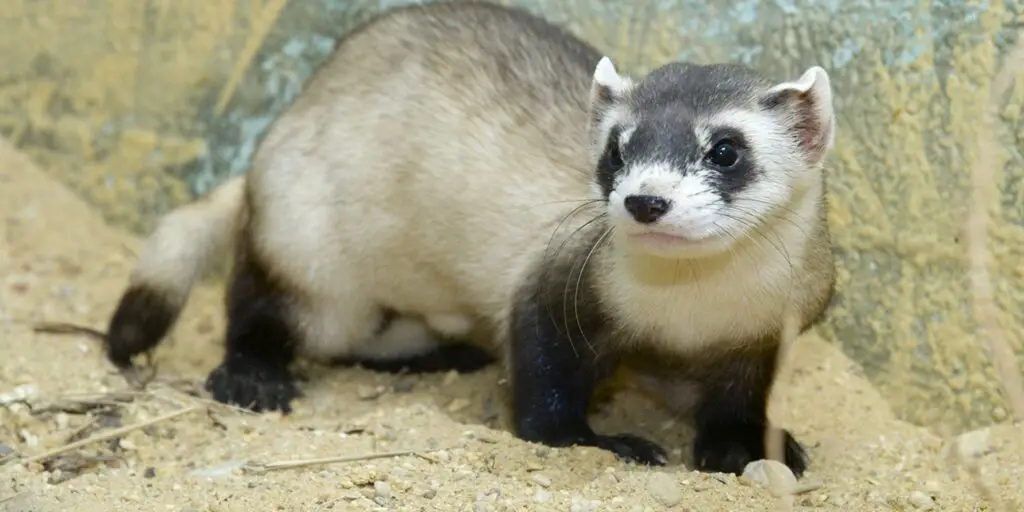
What sounds does a ferret make?
They use a loud chatter to sound an alarm in the presence of danger and a hiss to show agitation or fear. Females whimper to encourage their young to follow them around, and males often “chortle” to females during breeding.
Perhaps the most iconic sound associated with ferrets is the “dook.” This joyful and enthusiastic vocalization is often heard during playtime. It’s a sign of excitement and can be likened to a chuckling or chortling sound. When ferrets are running, hopping, or engaging in playful antics, you’re likely to hear this adorable sound, which is a clear indication of their happiness.
When you’re snuggling with your ferret, you might notice soft, contented chuckling sounds. This is a sign that your ferret is feeling relaxed and comfortable in your presence. Ferrets can also emit a gentle purring noise when they are especially content, much like a cat’s purr. These sounds are often heard when a ferret is being petted or cuddled.
Ferrets can be quite vocal when they want attention or are excited. They might make clucking or grunting sounds to get your attention or to express their enthusiasm. These noises are often accompanied by playful antics, such as bouncing or dancing around.
While less common, ferrets can hiss when they feel threatened or agitated. This is a defensive sound and is often accompanied by body language like arched backs and puffed-up tails. It’s a signal that your ferret wants space and should be approached with caution.
Why do ferrets yell?
Fear. One common reason ferrets won’t stop screaming is simply being scared. If they’re feeling cornered or threatened in some way, they might vocalize to express their fear, whether in screams or cries.
Ferrets are social animals, and they communicate with each other and their owners through a range of vocalizations. Yelling is one of these vocalizations, and it can have various meanings. When a ferret yells, it’s typically trying to convey a message or express its needs.
One common reason for ferrets to yell is playfulness. Ferrets are naturally energetic and enjoy interactive play. When they’re excited and engaged in playtime, they might yell as a way to express their enthusiasm. This is especially common during rough-and-tumble play with other ferrets or with their human companions.
Ferrets are social creatures that thrive on human interaction. If they feel lonely, bored, or simply want attention, they might resort to yelling as a way to get your focus. This is their way of saying, “Pay attention to me!”
Ferrets can become frustrated or agitated when they encounter obstacles or challenges in their environment. For example, if they are trying to reach a toy or explore a confined space and encounter difficulties, they might yell out of frustration.
Do ferrets hiss?
Hissing could mean your ferret is angry or frightened and you should leave him along to calm down, or if playing with other ferrets, hissing can be a means of communication. Your ferret’s body language will usually give your ferret’s mood away!
One of the most common reasons ferrets hiss is as a form of defensive behavior. When a ferret feels threatened, cornered, or uncomfortable, it may hiss as a warning sign to potential threats. This can occur when unfamiliar animals or people are approaching them or if they find themselves in a situation they consider stressful.
In multi-ferret households or when introducing a new ferret to an established group, hissing can also be a sign of territorial aggression. Ferrets may hiss as a way to establish boundaries and assert dominance. Over time, as they adapt to their social dynamics, the hissing may decrease or stop altogether.
Hissing can also be a response to physical discomfort or pain. If a ferret is experiencing pain due to an injury or illness, it may hiss when touched or handled. In such cases, it’s essential to check for signs of injury or illness and consult a veterinarian if necessary.
Fear and anxiety can trigger hissing in ferrets. New or unfamiliar environments, loud noises, or sudden changes in their surroundings can make ferrets feel uneasy and lead to hissing. Proper socialization and gradual exposure to new experiences can help reduce anxiety-related hissing.
Can ferrets hear well?
Ferrets have acute hearing and a sense of smell that far surpasses human (and even dog) capabilities. They also have extra-sensitive footpads, altogether making up for their poor eyesight.
Ferrets have a highly developed sense of hearing, which allows them to detect sounds over a broad range of frequencies. They can hear sounds in the ultrasonic range, beyond the range of human hearing. This heightened sense of hearing makes them adept at picking up high-pitched noises, which is crucial for their interactions and detecting potential prey.
Ferrets use their sense of hearing to communicate with each other. They produce a variety of vocalizations, including playful “dooking” sounds, hissing when threatened, and barking during play. Their acute hearing helps them perceive subtle variations in these vocalizations, allowing them to convey and understand different messages.
In the wild, ferrets are skilled hunters, and their sense of hearing plays a vital role in locating prey. They can detect the movement and sounds of small animals, such as rodents or birds, even when they are hidden or moving quietly. This ability makes them successful predators.
Ferrets use their hearing to stay aware of their environment and potential dangers. They can hear approaching footsteps, movements of other animals, or any disturbances in their surroundings. This heightened awareness helps them respond to changes in their environment quickly.
Why are ferrets like cats?
Cats and ferrets have a lot in common. Clever, carnivorous and oh-so-cute, these creatures share some of the same instincts — like hunting prey and defending themselves against any larger animal. Ferrets can even be trained to use a litter box just like cats and may be able to share food with kittens (not adult cats).
Like cats, ferrets are known for their independent and self-reliant personalities. They enjoy exploring their surroundings, and they often entertain themselves with toys or by chasing after objects. Ferrets are also skilled at self-grooming, just like cats, which helps them maintain their cleanliness.
Both ferrets and cats are incredibly curious creatures. They are naturally drawn to investigate new sights, sounds, and scents. This curiosity can lead to playful exploration and an eagerness to interact with their environments.
Ferrets and cats are agile and have remarkable coordination. They can gracefully navigate obstacles, jump, and climb, showcasing their physical prowess. This agility adds to their charm and can make them delightful to watch as they move through their environment.
Just as many people form strong bonds with their cats, ferret owners often develop deep connections with their ferrets. Ferrets can be affectionate and enjoy cuddling with their owners, seeking warmth and comfort in their presence. This bonding experience can be remarkably similar to the bond between cat owners and their feline companions.
Are ferrets loud animals?
While they can and do vocalize, for the most part, ferrets are very quiet. The most noise they will make is if they are very frightened or injured. They also sleep away a large portion of the day.
The most well-known and endearing sound ferrets make is the “dook.” This is a playful and enthusiastic vocalization, often heard during playtime or when they are excited. While it can be quite lively and entertaining, it is not particularly loud.
Ferrets may use clucking or grunting sounds to get your attention or express their excitement. These sounds are generally not loud but can be quite expressive.
Ferrets can hiss when they feel threatened or uncomfortable. This hissing behavior is usually accompanied by arched backs and fluffed-up tails. It is a defensive sound rather than a loud one.
Some ferrets may emit small barking sounds during play, especially when engaged in mock battles with other ferrets or their human companions. These barks are not very loud and are part of their playful interactions.
Why do ferrets kiss you?
Just as in humans, your ferret kissing you on the lips can be a sign of affection. It can also mean that your ferret likes the flavor of your lip balm or of the turkey sandwich that you had for lunch.
Ferrets have an acute sense of smell, and they use it to explore and interact with their environment, including you. When a ferret approaches your face and sniffs or nuzzles you, they are trying to get to know you better. This behavior is a form of bonding and affection.
Ferrets are naturally inclined to groom themselves and their companions as a way of maintaining social bonds. When a ferret licks or nibbles on your face or hands, it’s a sign of affection and a way for them to groom you. This behavior is often seen as a sign of trust and love.
Sometimes, ferrets may gently nip or “bite” your nose, lips, or fingers during playtime. This nibbling is typically not aggressive but rather a playful interaction. It’s their way of engaging with you and expressing their enjoyment.
When a ferret cuddles up to your face or neck, they may be seeking warmth, comfort, and security. Ferrets are social animals that thrive on physical contact and closeness to their human caregivers. Cuddling near your face allows them to feel safe and protected.
Can ferrets cry?
It is not so much what the ferret does as it is a change in behavior. In other words, while ferrets stoically won’t show pain or distress by crying, they often signal pain with behavioral changes.
Ferrets use a range of vocalizations to communicate. They can make sounds like “dooking” when excited, playful barks during interactive play, hissing when threatened or irritated, and even screeches when in pain or distress. These vocalizations can indicate their emotional state and needs.
Ferrets are highly expressive through body language. They may arch their backs and puff up their tails when feeling threatened or angry. Conversely, they may flatten their bodies and appear relaxed when content or sleepy. Observing their posture and movements can help you understand their emotions.
Changes in behavior can also signal a ferret’s emotional state. If a ferret becomes unusually withdrawn, lethargic, or aggressive, it may be experiencing discomfort or distress. Paying attention to alterations in their typical behavior can provide insights into their well-being.
Ferrets can show physical signs of distress or discomfort. This might include restlessness, panting, or vocalizations if they are in pain or suffering from an illness or injury. Any sudden or severe changes in their physical condition should be addressed promptly by a veterinarian.

Conclusion
The world of ferret vocalizations is a fascinating one, revealing the rich tapestry of emotions and interactions that these playful creatures share with their human companions and fellow ferrets. From the joyful “dooking” during playtime to the contented chuckles when they’re cuddled and the array of clucks, grunts, and tiny barks that express their excitement and need for attention, ferrets use their voices to communicate in ways that are unique and endearing. However, ferrets are not just about cheerful sounds. Their sharp screeches and hisses convey their discomfort and displeasure, serving as crucial signals to their owners to respect their boundaries and needs.
Understanding and interpreting these sounds not only enhances our ability to care for and bond with ferrets but also deepens our appreciation for the complexity of their emotions and personalities. Through their vocalizations, ferrets noise let us glimpse into their world, inviting us to share in the joy, playfulness, and occasional grumpiness that make them such delightful and cherished companions. In delving into the diverse range of sounds ferrets make, we also gain insight into the depth of their communication. Their vocalizations not only express their emotions but also serve as a form of social interaction. Ferrets are highly social animals, and their sounds play a crucial role in maintaining bonds within their group or with their human caregivers.
Moreover, the sounds ferrets make can be a source of entertainment and amusement for those who love and care for them. Whether it’s the comical “dooking” that accompanies their playful romps or the comforting purrs they emit when they’re snuggled up in your arms, these sounds add a layer of charm to the already charismatic nature of ferrets. Our exploration into the sounds of ferrets, we are reminded that these small animals have a big presence when it comes to expressing themselves. Their vocalizations are not only a means of communication but also a window into their personalities, allowing us to connect with them on a deeper level. So, next time you hear your ferret “talk,” take a moment to listen and respond, for in those sounds, you’ll find the heartwarming language of a beloved and cherished companion.

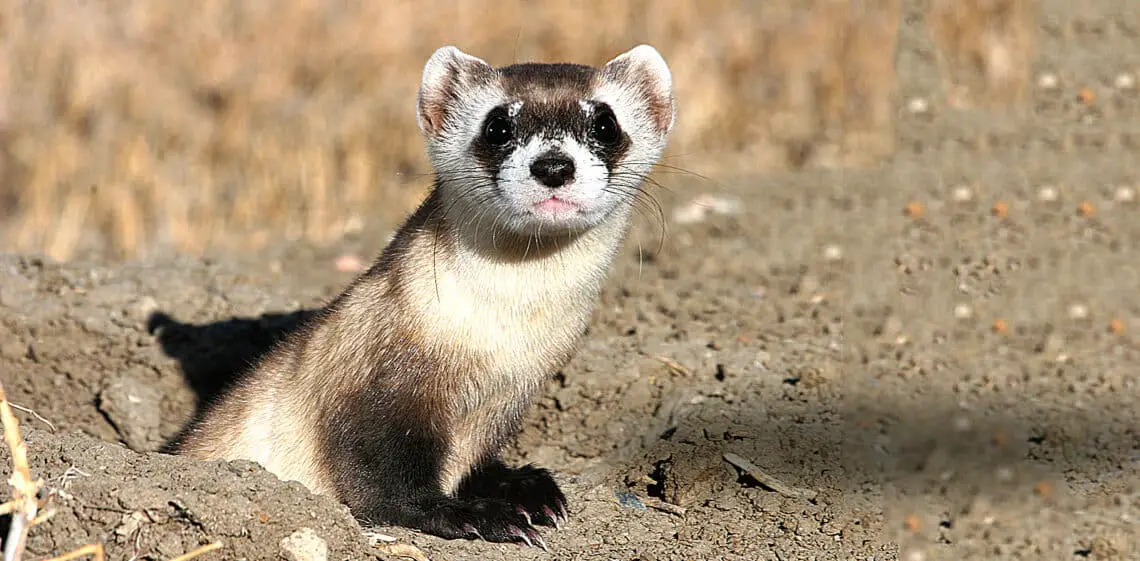
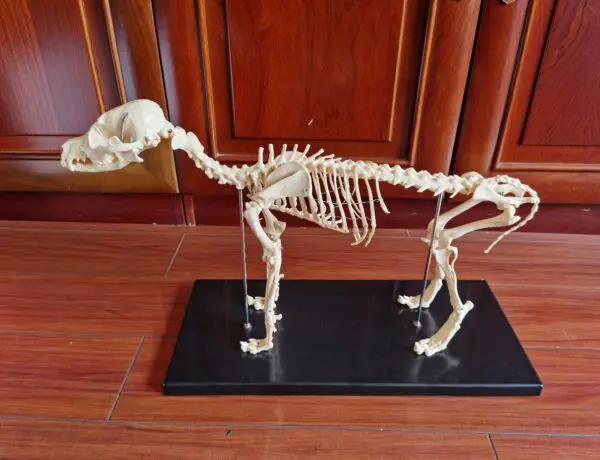
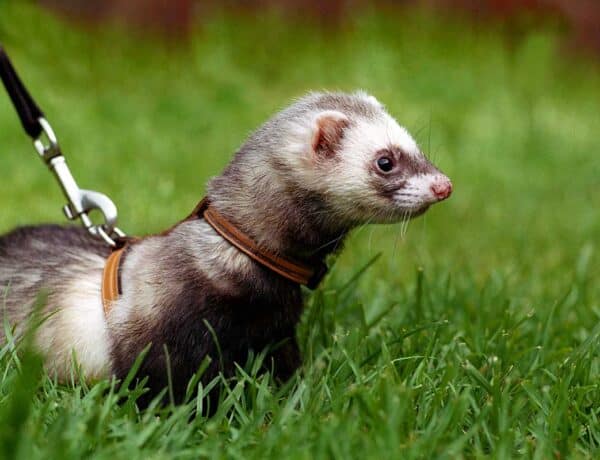
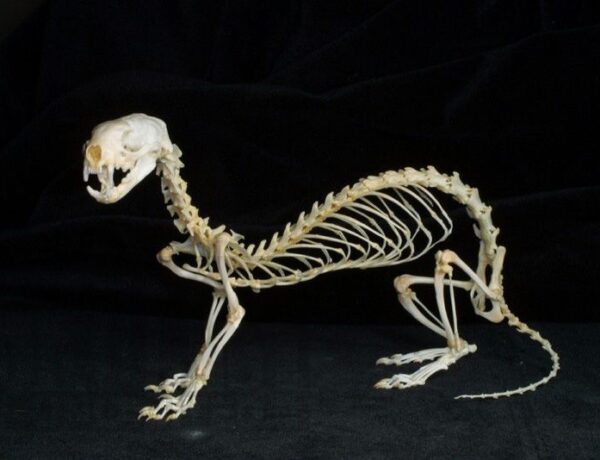
No Comments